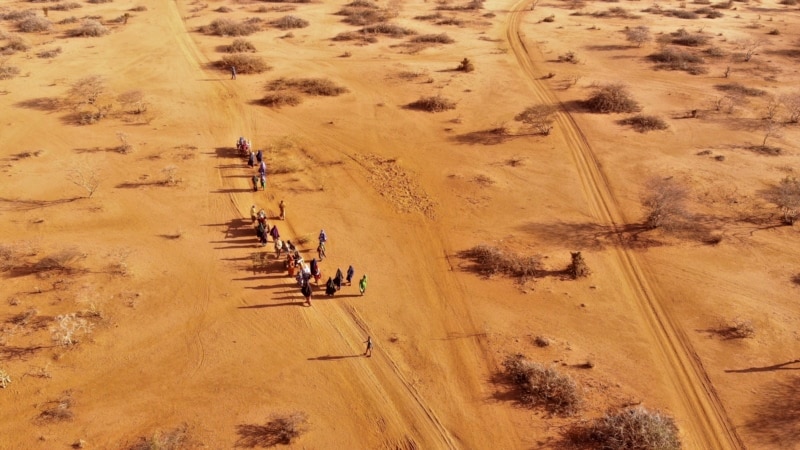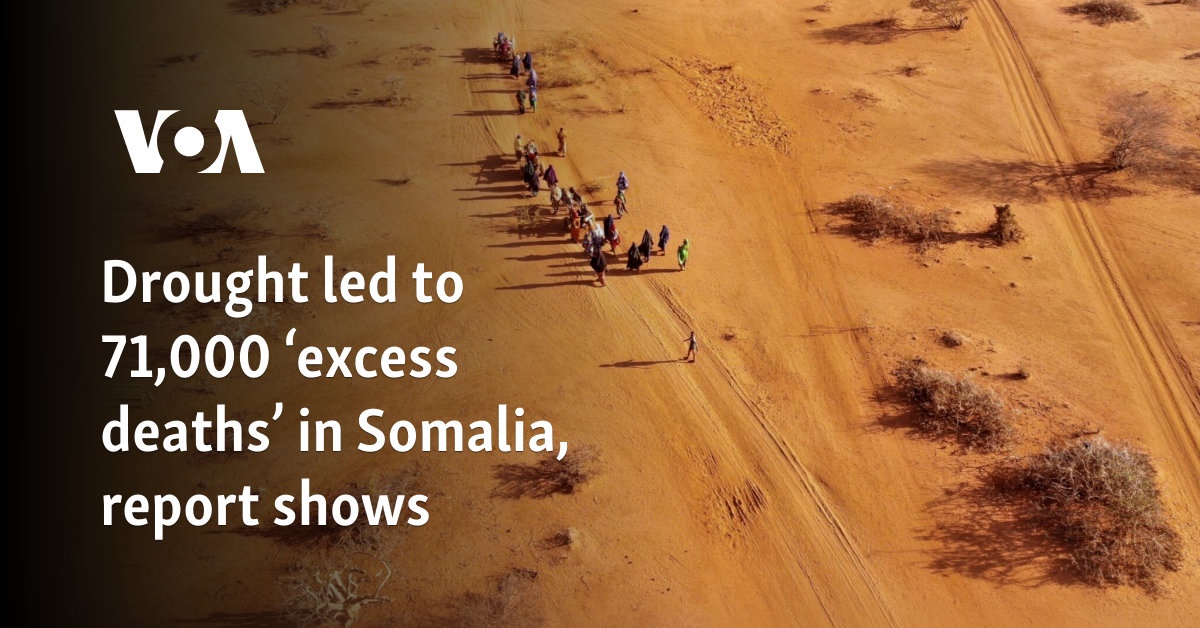This website uses cookies so that we can provide you with the best user experience possible. Cookie information is stored in your browser and performs functions such as recognising you when you return to our website and helping our team to understand which sections of the website you find most interesting and useful.


A study finds that severe drought plaguing parts of Somalia since 2022 has killed at least 71,000 people beyond the number expected.
About 40% of the lives lost were children under the age of 5, said the study, commissioned by the U.N. Children’s Fund, the World Health Organization and Somalia’s Ministry of Health. The study covered the period between January 2022 and June 2024.
In an interview with VOA Somali, Dr. Najib Isse Dirie, the deputy director for research at Mogadishu’s SIMAD University, which helped carry out the study, said the excess deaths were the result of five failed rainy seasons that brought parts of Somalia to the brink of famine.
“During the drought and after, the people experienced a significant 'drought-related excess' in different cases,” he said. “Living in overcrowding IDP camps, loss of their livelihoods, and the lack of rainfall severely impacted their crop yields and made them vulnerable.”
Speaking at the report launch in Mogadishu on Wednesday, the WHO’s representative to Somalia, Dr. Renee van De Weerdt Renhilde, said the study is an unpleasant reminder.
“The findings of this study highlight the profound impact that the 2022–2024 drought has had on the lives of the Somali people. ... This is a stark reminder of the urgent need for continued support and resilience-building efforts in Somalia,” she said.
“This also underlines the critical importance of strengthening Somalia’s health emergency prevention, preparedness, readiness and resilience system to effectively respond to emergencies and provide sustained care for people in need,” she added.
“WHO continues to collaborate with the Somali government and partners to ensure that communities are not only protected during crises but also empowered to withstand and recover from future shocks.”
At the launching ceremony, Somali Health Minister Dr. Ali Hadji Adam Abubakar explained his county’s plans to limit the impact of future droughts by giving priority to vulnerable children and women.
“For my ministry, our focus is on creating a strong and robust health system as the cornerstone of a healthy and thriving Somali society,” Abubakar said.
As it launched an appeal this week to raise $1.43 billion, the U.N. issued a warning that about 6 million people in Somalia will require humanitarian aid this year.
In a statement, the U.N. Office for the Coordination of Humanitarian Affairs said, "Somalia continues to face a complex, protracted humanitarian crisis," pointing out that conflict, insecurity, disease outbreaks, and recurrent shocks from climatic phenomena such as drought and floods further worsen Somalia's humanitarian needs.
In 2011, a famine in Somalia killed more than a quarter-million people.
The study was commissioned by UNICEF and the WHO and carried out by the London School of Hygiene and Tropical Medicine, Imperial College London, and Somalia’s SIMAD University.



 Africana55 Radio
Africana55 Radio 
